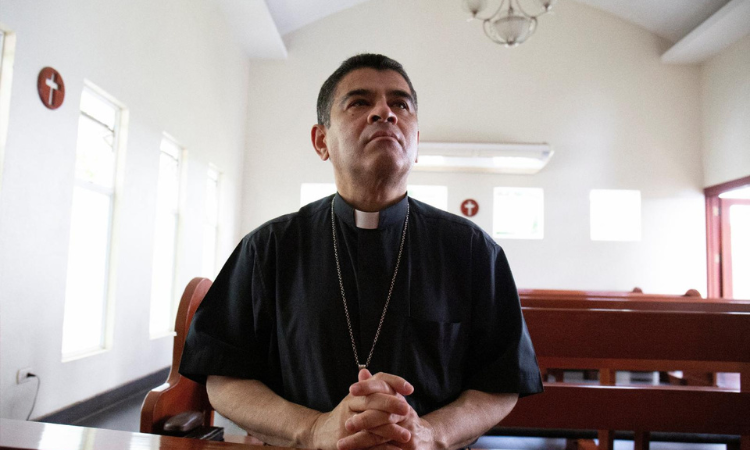The release of 222 Nicaraguan political prisoners on February 9 is good news. Most of these prisoners had been incarcerated in inhuman conditions, subjected to torture and solitary confinement, some for nearly two years, in the bowels of Sandinista dungeons.
Underneath the good news, however, lies the crude reality of a Faustian bargain for those released and for Nicaragua. The beleaguered prisoners suffer twice, once in the initial imprisonment and also in their release. Let us remind ourselves that Daniel Ortega and Rosario Murillo falsely accused and later convicted those now released for opposing or wishing to oppose the dictatorship. The dictatorial couple deprived Nicaraguans of their liberty for daring to wish for a freer country.
The regime presented prisoners a gut-wrenching binary choice: they could remain prisoners or choose banishment, which meant being deported to the United States and stripped of their nationality. Without their nationality, they lose all civil and political rights, including their right to return to their homeland. Their properties were also confiscated, and these punishments were arbitrarily added to their previous sentences. So appalling are the official and unofficial punishments that they stray from the country’s already infirm constitutional order.
Even when the Sandinistas pushed prisoners to sign waivers pretending that their departure was “voluntary,” the regime’s own orders speak of deportation: the forcible removal of persons from a territory. The arbitrary deportation of citizens contravenes international conventions and all norms of decency. Stripping dissenting citizens of their nationality is equally abominable.
Eager to dress up their brutish actions in legality, the regime amended local law and the Constitution overnight, reaffirming the lie that the deportees were “traitors to the motherland.” These abuses fly in the face of norms by which civilized governments abide.
But these were the punishments for those “choosing” to leave. The punishment for one choosing prison rather than the indignity of being uprooted from his homeland was worse. That lone prisoner is Monsignor Rolando Álvarez, bishop of Matagalpa.
The day after the 222 were shipped out, Álvarez was brought before Octavio Rothschuh, a Sandinista magistrate. Falsely charged with conspiracy against the stability of the state and spreading false news, the bishop had been placed under house arrest. Rothschuch declared him a traitor, stripped him of his nationality and sentenced him to 26 years in prison, doubling the worst sentence previously applied to the 222. Given the conditions of Sandinista prisons and the age of the prelate, this is a life sentence.
The good news in the release of some of Nicaragua’s bravest citizens overshadows the evil in the bargain as the country plunges deeper into the cavernous pit of incivility and tyranny. As Nicaraguan jurist Uriel Pineda pointed out, the regime’s actions represent a deeper decline in the “most essential elements of a civilized society” through the erosion of law and constitution.
Such despicable actions, Pineda insightfully noted, go beyond affecting those punished. Such violations send an intimidating message to any and all who oppose the regime. These actions also test the depth of loyalty in apparatchiks like Rothschuh, who must either support the regime even further outside the horizons of law, constitution, and decency or suffer the same fate as the deportees.
Visibly wounded in his pride, Ortega publicly vomited vituperations against the bishop for an imputed “arrogance.” Ortega is right to fear the bishop’s pastoral conviction. It is a threat to the regime. Ordinary Nicaraguans know better than to believe the bishop is a traitor, so Álvarez’s defiance models for them a peaceful but principled attitude: there are worse things than being in prison, if the alternative is living in fear or being a tool of Sandinista manipulation.
None of this is to reproach all 222 who were forced to take the deal to save themselves (to fight another day). Álvarez is in the service of higher goals. A good shepherd never abandons his flock.
Álvarez remains true to himself and in full control. He is guilty of standing up for his Christian faith in the defense of his flock and his beloved country. He is serving notice that he would rather live in indignity and suffering behind bars than abandon his people. In doing so, he is now the biggest threat to the capricious tyrants, whose only restraint against their desire to harm Álvarez more may paradoxically be that the bishop might be a greater threat in death than in confinement.
 Join us in our mission to foster positive relations between the United States and Latin America through independent journalism.
Join us in our mission to foster positive relations between the United States and Latin America through independent journalism.
As we improve our quality and deepen our coverage, we wish to make the Impunity Observer financially sustainable and reader-oriented. In return, we ask that you show your support in the form of subscriptions.
Non-subscribers can read up to six articles per month. Subscribe here.

